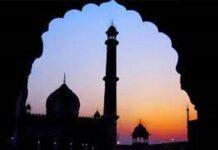The law is only on papers, and the state situation is detioritating. It is not a recent discovery that politics in Andhta Pradesh has deteriorated to an appalling degree. The abuse of State procedures has only gotten worse as a result of the caste-ridden society that its political parties and leaders have supported.
Recently, we have witnessed the abuse of official resources and authority to persecute political opponents and press charges against well-known critics of the government. This neither represents civic dialogue nor civil society. Those who talk about progress and development should remember that there is a method to fight back in democracies. Physical violence is not one of those approaches, by any means.
In addition to being mocked, anti-YSRCP voices have also been the target of many illegal tactics. Detentions, unauthorised incarcerations, arrests, and the use of violence as a method of silencing have all become commonplace. These intimidations target not just members of civil society but also government officials and politicians. As a result of their increased pliability, law enforcement agencies now go above and beyond to appease their bosses and even threaten the media with negative publicity. Also on the upswing are criticisms of the media for “becoming the voice of the Opposition.” Officials are urged to look for ways to ‘fix them’ by bringing cases against journalists, who are not exempt.
The government cannot simply dismiss its juvenile behaviour. The protestations against news coverage of such incidents from the top order of the ruling party notwithstanding, the people of AP know that the devious ways of power are on full display here. Political violence compromises necessary social and political systems and inhibits individuals from participating in social and political life. Is that what the ruling party seeks?
Political violence threatens three inter-related domains of functioning: individual functioning in relationship to their environment; community functioning and social fabric; and governmental functioning and delivery of services to populations. It need not be overemphasised that political violence is the deliberate use of power and force to achieve political goals. Even the World Health Organization has stated that political violence is characterized by both physical and psychological acts aimed at injuring or intimidating populations.
While going through the WHO report on the issue, one could easily relate to the situation in AP when the WHO definition of political violence also includes deprivation, the deliberate denial of basic Rights and human rights. But why is the ruling party resorting to these acts? Is it insecure? Does it feel frustrated that its popularity has taken a dip despite the ‘revari’ culture imposed on the State to the detriment of the State finances? Or does it feel smug in its association with the ruling party at the Centre to perpetuate its atrocities in the State to such an extent?
By establishing unequal distributions of social, economic, and political power, the YSRCP has not only legitimised political violence but also unleashed structural violence through societal structures to routinely, consistently, and intentionally prevent the achievement of all human potential.
Examples of the brutalization of democracy include the use of the death penalty against individuals, assaults on the judiciary, the diverting of funds from all sources to so-called welfare measures, the withholding of salaries, the vilification of rivals on social media, and policies involving alcohol and sand that speak of profiteering. Always keep in mind that you reap what you sow. #hydnews #hydkhabar #hydlive







